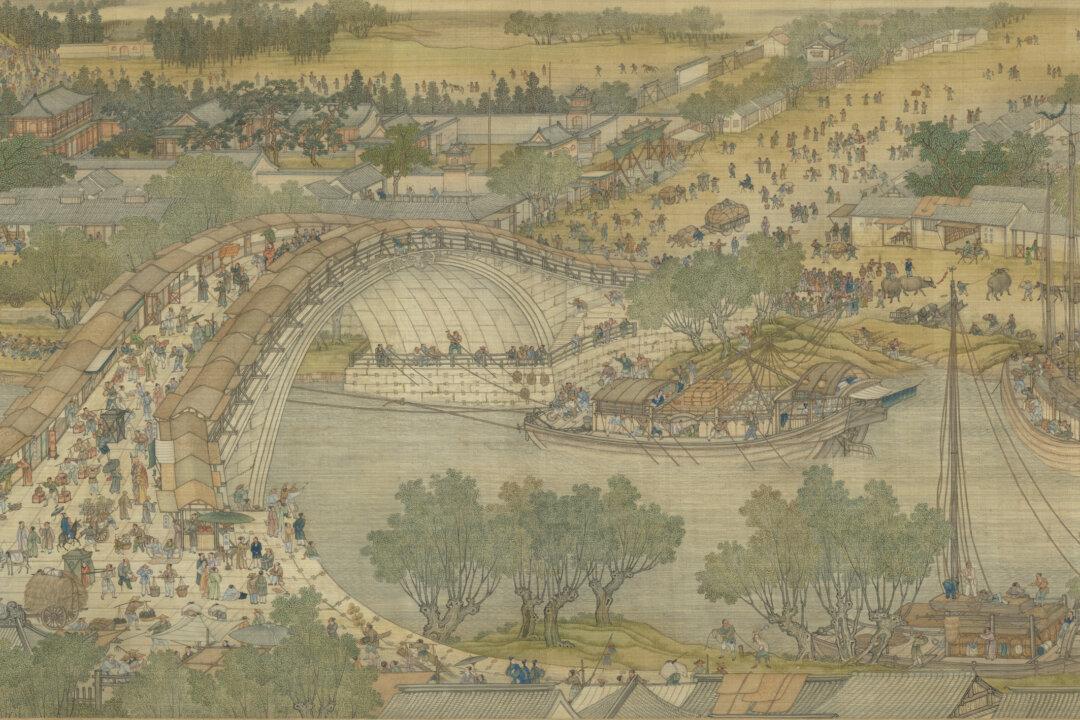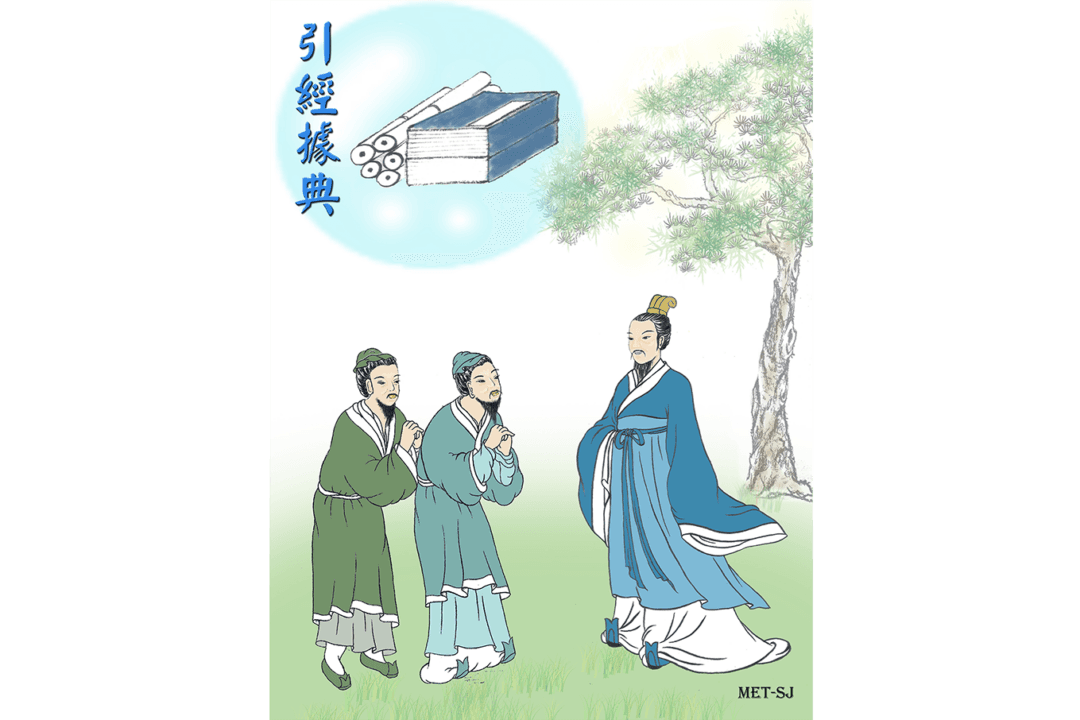Guan Zhong ( 管仲 ), born Yiwu ( 夷吾 ), was a distinguished politician and strategist in the state of Qi during the Spring and Autumn Period of Chinese history. He was appointed Prime Minister of Qi by Duke Huan (685 B.C.). Under Guan’s governance, Qi became the most powerful state in that period.
Humble Beginnings
While still a child, Guan Zhong lost his father and lived in poverty with his mother. Early on, he became friends with Bao Shuya.
Recognizing Guan’s talents but sensitive to his life of poverty, Bao always looked after Guan and treated him with great kindness, overlooking any slights. Eventually, the two friends participated, as partners, in business ventures. Later, the two entered politics together, as well, and acted as tutors to the two princes of Qi, Prince Jiu and Prince Xiaobai.
Guan Zhong tutored Prince Jiu while Bao Shuya was tutor to Prince Xiaobai, the future Duke Huan of Qi. During a period of great unrest in the state of Qi, the two mentors fled with their charges to nearby states.
In 686 B.C., Duke Xiang, the boys’ father and the reigning duke of Qi at the time, was killed and the prime minister was also assassinated. This left a vacuum of power and governance. Guan Zhong believed Prince Jiu had the right to the throne as the elder brother, but Bao Shuya backed his own charge. Both tutors and the princes rushed to make it back to Qi.
Prince Xiaobai slipped past Guan Zhong and Prince Jiu, making it back to Qi first, and took the throne.
Bao Shuya, now the trusted advisor adviser to the reigning duke of Qi, recommended that Duke Huan appoint Guan Zhong to be prime minister. Duke Huan had wanted to promote his tutor and guardian, Bao Shuya, to that post. However, Bao Shuya vouched so strongly for his friend’s talent that Duke Huan eventually gave in and Guan Zhong became Prime Minister of Qi in 685 B.C.
Building a Strong State
Soon after his appointment, Guan started his modernization of the Qi state with multiple reforms, and his policies later helped Duke Huan became the first of a series of hegemons, or dominant leaders, of the vassal alliance in the Spring and Autumn Period.
Guan centralized state power by dividing the state into regular units to be administered by a central bureau that reported directly to the duke. Guan Zhong completely overturned the tradition of passing down official government roles to aristocrats, based solely on family background.
Guan divided the population into four groups— officials, peasants, craftsmen, and merchants. He then developed a more effective method of selecting talented officials using new training programs, and, thereby, also spawned a generation of professional bureaucrats.
Instead of depending on small bands of soldiers trained under different aristocratic families, he applied to the villages directly to conscript manpower for an army. With these reforms, Guan helped Qi steer the administrative responsibility from the once-powerful, aristocratic clans to a professional, centralized bureau.
These reforms were the early start of the emerging philosophy of legalism in which the monarchy should be absolute, administering strict control over all activities, with a uniform system of rewards and punishments for everyone. Judgment was meted out according to law.
However, Guan was not a legalist in a strict sense. While he advocated for state administration and control, he also believed in a parallel focus on the moral virtues and religious traditions that had already established themselves as ideals among the Chinese people.
Guan Zhong also believed that the people’s welfare was the foundation of a state. Well-fed people would be easily educated with decency and etiquette, and be more amenable to being regulated by rulers. He, therefore, created a uniform tax code and used state power to promote the production of salt and iron.
Guan advocated that the ruler should care for the economic prosperity of all social classes and ensure that the people were willing to serve the ruler. Guan believed that the four pillars of a state were decency, justice, integrity, and conscience. The ruler should live according to these principles and be an exemplar of virtue.
Both Foreign and Domestic
During his 40 years as prime minister, Guan Zhong implemented a series of reform measures in both domestic and foreign affairs. With his assistance, Qi was prosperous, strong, and politically influential.
Guan Zhong is credited as the author of Guan Zi, the earliest known book on legalism and economics in ancient China that covers politics, economy, and philosophy.
In terms of economics, the book covers finance, banking, trade, taxation, and other aspects of the economic field, and had a large impact on the economic development of ancient China.




